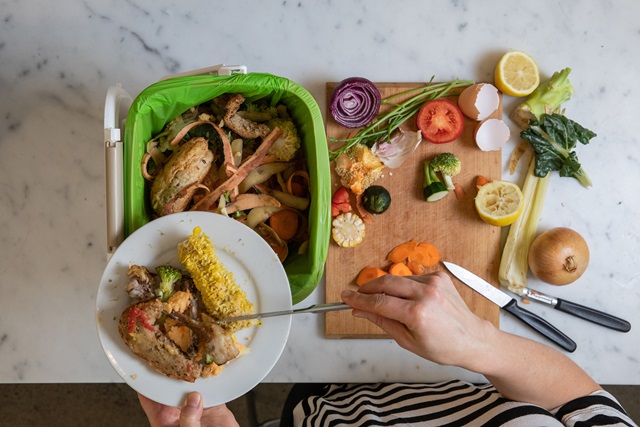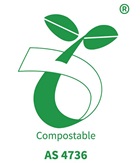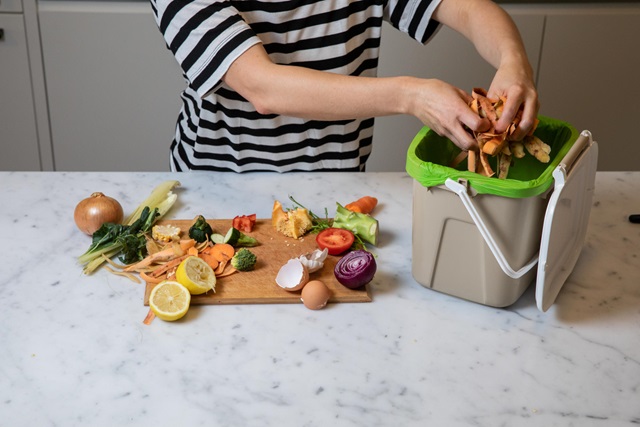Food scraps recycling service
More than 22,000 households have access to the service and we plan to roll out an offering to all residents.

Why it’s important
Food waste typically makes up one-third of our residents’ red lid rubbish bins.
By collecting and recycling food scraps separately, we can reduce greenhouse gas emissions and waste sent to landfill. We can also nourish our environment, with the scraps we collect converted into nutrient-rich compost.
Making food scraps recycling available to all our residents is one way we’re achieving our waste reduction goals.
What we’re doing
From trial success to sustainable journey
In July 2019, we began a successful trial involving the separate collection and recycling of food scraps from residential properties.
Since the end of the trial in October 2021, we’ve continued to collect and recycle food scraps. The service is currently available to over 22,000 households and we add new apartment buildings where possible.
Expanding food scraps recycling
We know how important food scraps recycling is to you and it’s just as important to us. In March 2025, Council endorsed a plan to roll out a food recycling service to all households in the City of Sydney by 2030.
This is in line with the state government’s requirement that a separate food and garden waste service be available to all NSW households by 2030.
Extending food scraps recycling is a complex project with factors we need to consider:
- The unique make-up of our communities. Unlike most local government areas, about 80% of our residents live in apartments and don't have green lid bins. Other local government areas have more houses with gardens. Their residents can use their existing green lid bins for food scraps.
- The best way to process a large amount of food scraps. There’s limited processing capacity in Sydney for food scraps. We need to work with government and industry to find a processor that can take all our community's food waste and turn it into beneficial products.
- How to collect food scraps most efficiently. We need to minimise the environmental impact of a new collection service.
Don’t have the service? Other options for food scraps recycling
If your house or building isn’t participating in the service, you can still recycle your food scraps and play your part in reducing food sent to landfill.
Walk, ride or link up with public transport to drop off your food scraps at our Ultimo recycling pop-up. There is no access by car and street parking is limited.
Think about composting food scraps or setting up a worm farm. Check out our tips for composting. Bokashi bins are also a great alternative for those living in apartments.
Avoiding food waste in the first place
You can avoid or reduce food waste by planning your meals, shopping wisely, being creative with leftovers, and storing food correctly.
Love Food Hate Waste and Cornersmith have partnered to create a free online series of video tutorials. Learn how to reduce food waste in your kitchen, including storage tips, dinner ideas, low-waste snack recipes and other helpful waste hacks.


